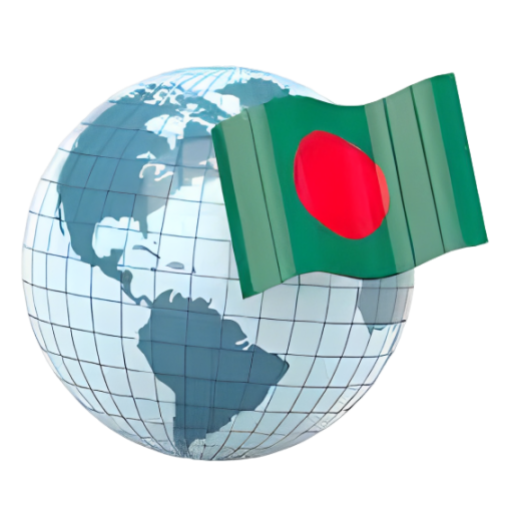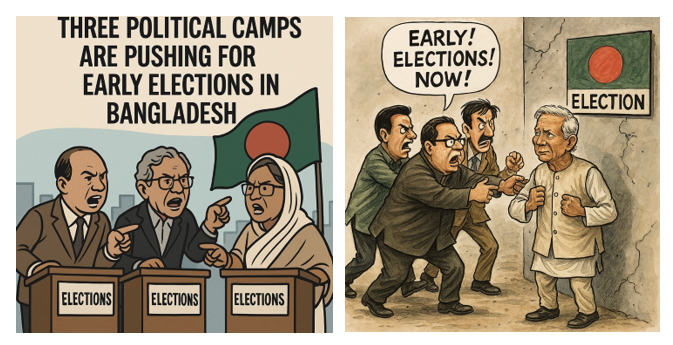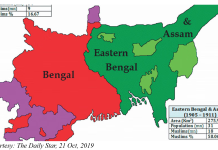The rise of Dr. Muhammad Yunus’s interim government has unsettled entrenched interests across political, regional, and geopolitical spectrums.
Since assuming responsibility for Bangladesh’s interim government, Nobel Laureate Dr. Muhammad Yunus has pursued a vigorous foreign policy agenda. He has met with global leaders, including the UN High Commissioner for Human Rights, the President of the World Bank, the Managing Director of the IMF, USAID’s Administrator, and even U.S. Presidents—former President Bill Clinton and then-President Joe Biden. The UN Secretary-General’s visit to Dhaka and Dr. Yunus’s strategic outreach to Beijing have together propelled Bangladesh to new heights on the global stage. Regionally, he has engaged with leaders from Malaysia, the UAE, Mauritius, Canada, Italy, Pakistan, Nepal, Maldives, and the Netherlands to build cooperative alliances for development and reform.
Dr. Yunus has not only advocated for a revival of SAARC but has also initiated efforts to join ASEAN and other regional economic partnerships. Dr. Yunus’s recent participation in the BIMSTEC summit in Thailand, including a sideline meeting with Indian Prime Minister Narendra Modi and discussions with top officials from Myanmar regarding the Rohingya issue, along with his acceptance of BIMSTEC’s leadership for the next two years, has significantly elevated the diplomatic standing of the Yunus interim government in regional affairs. His diplomatic momentum has earned Bangladesh newfound international respect. In response, key global players—including the UN, World Bank, IMF, the U.S., Canada, the EU, the Middle East, Pakistan, and China—have extended their support through financial aid, technological partnerships, trade opportunities, and foreign direct investment. The overwhelming response from investors representing approximately 40 countries—including the United States, China, South Korea, Germany, and others—to the Yunus government’s 1st Bangladesh Investment Summit 2025 underscores the administration’s growing credibility on the global stage. In sum, Yunus’s leadership is reshaping Bangladesh’s economic and diplomatic standing on the world stage.
A Nation in Ruins — and Recovery
Domestically, his administration inherited an economy on the verge of collapse. Never before had ten major banks simultaneously approached insolvency in the country’s history—an outcome attributed to the systemic corruption and economic mismanagement under Sheikh Hasina’s regime. With her government’s fall, the financial devastation, project-level embezzlement, capital flight, and institutional corruption became fully visible.
The country’s law enforcement, judiciary, civil service, and even the cabinet were riddled with allegations of corruption. This triggered a people-led uprising akin to a revolution—dubbed the “July Revolution”—that nearly led to economic collapse. Despite the attempts at political sabotage, internal resistance, and propaganda from neighboring powers, due to the efforts of expatriate Bangladeshis through remittances and Dr. Yunus’s steady leadership, the country is on the path to economic stabilization. As an economist, I can appreciate the significance of this achievement. Under Dr. Yunus, Bangladesh is increasingly being viewed by the international community as a sovereign, reform-oriented government now than ever before.
Delhi’s Dilemma
This development has rattled both the remnants of the Hasina regime and their long-time ally, New Delhi. India’s discomfort is not hard to understand. Its government has yet to normalize relations with Dhaka. Recently, Indian Army Chief General Upendra Dwivedi remarked that bilateral ties will only improve once Bangladesh elects an elected government, suggesting India refuses to engage constructively with the interim administration under Yunus.
India’s efforts to push for an early election appear to be a strategic attempt to remove Dr. Yunus from power. Propaganda has already begun: Indian media have accused Bangladesh of descending into religious extremism, framing it as a rising “Islamic terrorist state.” Ironically, while India’s current administration is itself rooted in fundamentalist ideology, it criticizes Bangladesh for issues it grapples with at home—mob violence, temple-mosque disputes, and communal tensions.
To stoke unrest, Hasina’s activists along and ISKCON (the International Society for Krishna Consciousness) together tried to fuel communal disharmony in Bangladesh. A lawyer was murdered to exploit and paint a narrative of rising insecurity for Hindus in Bangladesh – that failed. The scale of misinformation and disinformation about Bangladesh is so vast that even my Indian Hindu friends in Canada have believed and stated to me that mass killings of Hindus are occurring in Bangladesh post-Hasina. But I visited Bangladesh last December and spoke with many Hindu friends—none reported facing any danger.
The Truth on the Ground
In response to these falsehoods, the Yunus government invited both Indian and international media to witness the situation firsthand. Many have since reported that religious minorities are safer now than under the previous regime. Temples and churches are being actively protected. Bangladesh, unlike India, is not a country where temples are discovered under mosques, vice-versa, or where beef consumption leads to lynchings. It is a nation rooted in communal harmony.
What bothers Delhi is that it no longer receives the preferential treatment it enjoyed under the Hasina regime—treatment that included water-sharing injustices, silence over border killings, and passive acceptance of illegal barbed-wire fencing. Yunus’s government, by contrast, speaks out and demands accountability.
India’s support of the voter-less elections of 2014, 2018, and 2024 made it complicit in propping up a regime that repeatedly subverted democracy. The question arises, how then can the so-called “world’s one of the largest democratic countries” endorse undemocratic Hasina governments?
The Corruption Files
The real fear in Hasina’s party is the prospect of accountability. If Yunus remains in power, corruption, disappearances, murders, and money laundering will not go unpunished. UN reports and commission findings have already exposed damning evidence from the Hasina era. Thanks to Yunus’s diplomatic credibility, these findings are gaining international recognition.
The Yunus government’s recently released White Paper has revealed that Hasina’s much-touted “development” was, in fact, a smokescreen for unprecedented corruption. Reform commissions have submitted reports outlining the necessary institutional changes to combat looting, extortion, and political favoritism. Implementing these recommendations could usher in real democracy and end authoritarian rule.
This is precisely what terrifies the Awami League. Unlike traditional political leaders, Yunus has no vested party interests. His administration is unlikely to offer immunity in exchange for political favors. But if BNP or another party assumes power, the Awami League hopes to manipulate the judicial system through bribery, blackmail, or backroom deals. Under Yunus, such tactics are unlikely to succeed—hence the desperate push for quick elections.
Opportunism Disguised as Patriotism
The BNP, too, has been pressuring the interim government for early elections. While initially suggesting patience, they have increasingly demanded an election roadmap. Their urgency has little to do with national interest and everything to do with regaining lost power. After years in opposition, they are eager to resume the privileges of governance.
But if love for the country is their true motive, why the haste? Both Awami League and BNP ruled Bangladesh for decades, but the people of Bangladesh have not seen any qualitative change. Neither democracy deepened nor has corruption abated. Bangladesh is hungry for a real positive change.
Dr. Yunus came to power on the back of a bloody revolution, with the support of students and the masses. He took over when the economy was crumbling—ten banks nearly bankrupt, debt repayment deadlines looming, and inflation soaring. Stabilizing such a broken system while managing foreign debt and reviving trade is a monumental task—and Yunus’s government has already made considerable progress.
Bangladeshis want a government that can foster international partnerships, attract investment, maintain political stability, strengthen institutions, and improve governance. Dr. Yunus’s administration is delivering on all fronts—and that’s exactly why the political old guard is so desperate to bring it down.

Nusrate Aziz
Dr. Nusrate Aziz is an Associate Professor of Economics in the School of Business and Economics at Algoma University. He is a Fellow of the Global Labor Organization (GLO), a member of the International Migration Research Centre (IMRC), and a research associate of the NORDIK Institute. In the past, he was an academic at the University of Bath, University of Nottingham, University of Birmingham, and Multimedia University, among others. He received a Ph.D. (International Economics), from the Department of Economics, University of Birmingham, UK. His research interests include labour migration, international economics, international business, international finance, institutional economics, environmental policy, and applied econometrics. He published in the European Journal of Political Economy, The World Economy, Applied Economics, International Review of Economics and Finance , IZA Journal of Development and Migration, Tourism Economics, and Marketing Intelligence and Planning ,among other journals.




